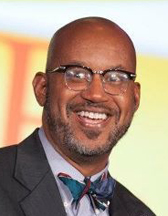As I argued in my last blog entry (Part I), making a difference must start with approaching justice differently. Justice describes the relational qualities among people. Said another way: justice is rooted in community. For actions to be just, they must be aligned with established community values or seek to restore the quality of relationships that are aligned with those values. Because I don’t believe the criminal adjudication process effectively defines justice, I offer the following as my description:
Justice exists when systems, institutions, and relational patterns are all aligned, oriented and operating so that every living being has full and fundamentally equal access to the resources and opportunities needed for full community thriving and individual actualization.
Let’s consider this approach to justice in our response to Trayvon Martin’s death and George Zimmerman’s exoneration:
Among the conditions that do not contribute to the pursuit of justice is the pervasive presence of fear in a community.
George Zimmerman – taken at his word- was initially afraid of what a young black man might be up to in ‘his’ neighborhood. His fear preceded Martin’s presence because he was already armed with deadly force and prepared to meet the source of his fear. After he pursued and engaged Martin, Zimmerman was then afraid of what he had gotten himself into.
The jury at some level recognized and affirmed that fear. Zimmerman’s exoneration suggests that both his fear and his lethal response to that fear were seen by at least five of the six jurors as reasonable. And the law did not offer the sixth juror a path to argue differently.
Trayvon Martin at some point would also have been gripped by fear that some “crazy white guy with a gun” was following him. This guy could be planning to rob, sexually assault, or commit any number of other heinous acts against him. In my judgment, this was not unreasonable.
Fear was pervasive in the Martin/Zimmerman encounter. Moreover, fear was determinant in the judge and jury’s evaluation of the case.
And now fear will likely escalate: African American parents (and all parents of color as well as many others) will need to be afraid of gangs and senseless street violence, the vigilante watchman and the police who suspect our children but fail to protect them. And because so many African Americans and others are intensely upset by the verdict and outcome, some people will be afraid of the possibility of retaliation from youth and African Americans. And because the judge and jury have affirmed Zimmerman’s fear, others may arm themselves in response to a ‘reasonable apprehension.’
Fear cannot provide a foundation for justice. But so many laws – like stand your ground laws – are rooted in fear. This is why the criminal adjudication process is ill-equipped to be our “justice system.” In the final entry (Part III), I will share my concerns about the limits of legal justice and argue for a wider community-based solution.
-David Anderson Hooker


Fear is definitely a common denominator here. And fear is at base not subject to rational argument. I find this the hardest thing I’ve come up against when pushing against laws that would ratchet up already draconian punishments in our criminal adjudication system. Until we find ways to lessen it, perhaps by pushing past estrangement and learning how to see each other, fear guarantees that we will continue to get these laws.
In The Terror Dream: Fear and Fantasy in Post-9/11 America, Susan Faludi provides a fascinating narrative and analysis of the role of fear in the American psyche, and in American politics.